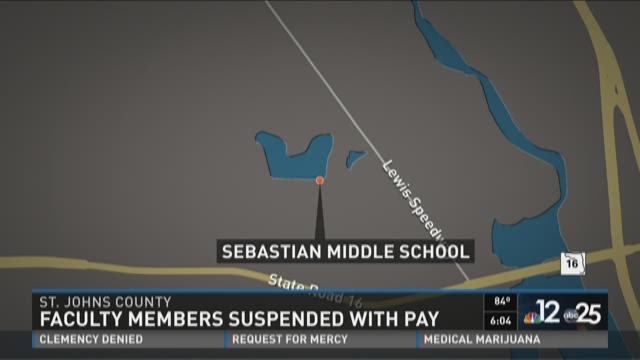
Come hell or high water: The disaster scenario that is South Florida
Easily lost in all this bigness is a temporary water feature – a large puddle by the side of the road near the foot of the elevated runway.
“This is just from rain,” says Lee Gottlieb, an environmental activist and 40-year resident of South Florida. “I don’t think it’s rained here in five, six days.”
But the rainwater pools anyway. Virtually all of South Florida is only a few feet above sea level. “They elevated the runway,” Mr. Gottlieb says, “but all the terminals …” he pauses, exasperated. “Obviously, if we had a major deluge – this is a flood area.”
It has become increasingly commonplace for politicians at every level of U.S. government – from small-town mayors to the President himself – to describe climate change as the single most important challenge of the coming century. Such rhetoric is buoyed by myriad crises, from sinking land mass in southern Louisiana to historic droughts in California. In low-lying Florida, the culprit is the rising sea level. Should the ocean crawl just one more foot up the edges of this peninsula – something that’s projected to happen in the next two decades, by some estimates – most of the canal systems that keep the saltwater out of the area’s drinking wells would cease to function. A few more feet, and entire towns suddenly turn neo-Venetian, the roads flooded, the infrastructure almost impossible to salvage.
But beyond the dire warnings, something else is happening in South Florida. Here, for the first time in North America, the conversation is no longer just about what climate-change countermeasures or conservation initiatives to pursue – taking shorter showers or subsidizing electric cars. It’s about a much more existential question: What if it’s too late?
…
Scientists are starting to suggest that, in the long run, much of South Florida cannot be saved and that policymakers should begin planning for how to best deal with a massive northward exodus in the coming decades, as some of the most iconic real estate on the continent begins to succumb to the sea.
“Sooner or later, this city, as you see it right now, won’t be like this,” says Henry Briceño, a water-quality researcher at Florida International University. “Miami and the whole of South Florida is not going to be like this any more. So we have to develop a way to plan and supply services in a changing scenario, and that’s not easy. And then, sooner or later, we’ll have to move. Most of the population will have to move.”
Imagine a prohibition on fossil fuels, effective tomorrow. Every gas-guzzler off the road; every coal plant shuttered; every source of greenhouse-gas emissions brought under control.
Even then, by some estimates, the atmosphere would experience residual warming for another 30 years. That, in turn, would continue to heat the oceans for about another century. The warming ocean would melt the ice-packs in Greenland and Antarctica. And, finally, those melting masses of ice would raise the sea level.
“We’ve missed the boat, so to speak, on stopping serious warming in a way so we can turn it around real quick,” says Harold Wanless, chair of the department of geological sciences at the University of Miami. “That’s gone, we’ve warmed the ocean too much. So we’re in for it now.”
Very few people in Florida have spoken as passionately – or for so many years – as Prof. Wanless about what the irreversible mechanics of rising sea levels are likely to do to the southern half of this state. The son of a geologist, he has been talking to anyone who’ll listen – community organizations, high schools, even the religious TV program The 700 Club – since the early 1980s.
Back then, projections estimated that sea levels would rise by about four feet by the end of the coming century. Today, that number is in the low to middle segment of U.S. government projections, which run as high as six feet.
“That’s going to eliminate living on all the barrier islands of the world,” he says. “It’s going to inundate major portions of the coastal delta in China, India, the U.S. and elsewhere. That’s where a huge amount of agriculture is.”
At six feet of sea-level rise, roughly half of Miami-Dade County will be under water. Given the impact such land loss would have on vital infrastructure, it may well render the area totally uninhabitable.
Few places are as geographically ill-equipped to deal with rising water as southern Florida. Not only is much of the land barely a few feet above sea level, it also sits on a bed of porous limestone and sand, making measures such as dikes far less effective. Higher sea levels would eat away at the barrier islands that buffer the coast against powerful storms – which is hugely problematic, given that more powerful storms are one of the hallmarks of climate change. The rising water also threatens to slip inland and contaminate the wells that provide much of the region’s drinking water.
“The biggest stress on the system is water supply,” says Doug Young, a long-time environmental activist who moved to Florida from Montreal 24 years ago. “We’re just about the most susceptible place in the entire world. The salt water pushes in from the ocean and gets into the aquifer. It’s happening as we speak.”
But even as experts tried for years to explain these looming catastrophes to South Florida residents, showing them maps of how much land would be lost with every foot of sea-level rise, often they would encounter the same response.
“They’d look at a map and say, ‘Oh, my house will still be there,’” Prof. Wanless says. “Yeah, but the infrastructure has totally collapsed, you just happen to be in a little high spot. There’s no sewage, and there’s probably no reliable electricity or anything any more. You’re just camping out there on your little hill.”
The response illustrates the central hurdle for climate-change activists: The changes will unfold over the better part of a century. In geologic terms, it’s a blink of an eye. But in human terms, where the standard unit of measurement is often a 30-year mortgage cycle, it’s easy to dismiss rising waters as a problem for a future generation to face.
Indeed, advocating for billion-dollar conservation measures – to say nothing of planning for an outright evacuation in several decades’ time – is lonely work in a place where the tourism and real-estate industries are doing brisk business. Countless condos are going up in Miami-Dade County alone, and new beachside hotels are popping up all along the southern coast. Of these, the closest thing to a forward-looking project is a proposal by a Dutch company to build a community of multimillion-dollar mansions that float.
Perhaps as a result, scientists here have had a particularly difficult time convincing the state’s leadership to treat climate change as a priority – or even a reality. In March, allegations surfaced that officials with the Florida Department of Environmental Protection were being ordered not to use the terms “climate change” or “global warming” in any official capacity.
The state government flatly denies that accusation. “The Florida Department of Environmental Protection has no policy banning the use of ‘climate change,’ ” says Lori Elliott, a spokesperson for the DEP, adding that the department is running a number of multiyear sea-level-rise monitoring and adaptation projects. “In fact, the department constantly monitors changes we identify in Florida’s ecosystems and works with other local and state agencies to ensure Florida’s communities and natural resources are protected.”
Regardless of where state authorities stand on the issue, rising sea levels pose another fundamental problem: unpredictability. So the prospect of oceans rising in a uniform, linear fashion – in a way that can be accurately approximated and planned for – appears unlikely.
…
A time-travelling cartographer, standing on the southern edge of the Florida peninsula some 18,000 years ago, would have seen a land mass roughly 160 kilometres wider than the one today. There used to be far more of this place, but the sea swallowed it.
What’s left of that land is a series of old beach ridges. Scanning the underwater ridges produces a timeline of how the land was drowned. Instead of a gradual rise, the spacing of the ridges indicates that the land loss happened in what Prof. Wanless calls “pulses.” Somewhere, a massive ice sheet would disintegrate, and over the following hundred years, a relatively huge sea-level rise would follow. The gradient was less akin to sliding down a smooth curve, and closer to falling down an uneven staircase.
That’s what worries scientists – the prospect of shocks, of sudden changes. And not just geological ones.
On a clear April day, Mr. Gottlieb, the environmental activist, drives to a seawall near Ft. Lauderdale. It is new, rising about three feet in the clearing between a sandy ocean beach and the road. It was built with flooding in mind, after rain from Hurricane Sandy inundated the roads here. The base cost of the seawall is about $10-million a mile. It is yet to be seen whether the wall will withstand, in any meaningful way, a direct hit from the next major hurricane.
Rising waters may eventually consume large swaths of South Florida, but sudden storms will likely change the geographic and economic landscape first. “Insurance companies are already increasing flood insurance premiums,” Prof. Briceño says. “There is a point when insurance companies will say ‘no more.’ And if you are unable to insure a property with a mortgage on it, your property is worth nothing.”
It is those sorts of shocks – uninsurable properties, credit-rating declines, crippling storm-damage bills – that a growing number of policymakers are trying to avoid. Tired of waiting for the state to act, a group of counties that occupy some of the most vulnerable ground in South Florida have formed a task force of sorts to figure out how to best address rising sea levels.
“We should be building for transition,” says Philip Stoddard, a professor at the department of biological sciences at Florida International and the mayor of South Miami. “We should be elevating areas to make it possible for some business activity to remain as the water comes up.”
But even with such measures, Prof. Stoddard has little doubt that, 20 years from now, many communities will begin fading away. “We’ll be depopulating,” he says. “You can either depopulate in a frantic, disastrous fashion, or you can do it methodically according to people’s risk tolerance. I’m all in favour of doing less damage as people head out the door.”
But Prof. Stoddard’s work is further complicated by the fact that nobody really knows just how much sea-level rise to expect. Models from 20 and even 10 years ago are looking increasingly conservative. And some new estimates are producing numbers that make the previous projections look trivial by comparison.
A few years ago, climatologist James Hansen suggested a sea-level rise of about 16 feet by 2100 – a number far higher than most other projections. The estimate was based in part on the idea of “amplifying feedbacks.” For example, ice reflects almost all solar radiation, but open water absorbs it. So as an ice sheet melts, it has a reinforcing effect, increasing the melting rate. Several of those feedbacks had not been incorporated into other climate-change models. Accounting for them, Dr. Hansen argued, pushed the numbers up.
The projection was met with skepticism. To test it, Prof. Wanless recently decided to see if the melt rate in Greenland was consistent with Dr. Hansen’s projections. Looking at satellite data, he found it was not – it was melting at an even faster rate.
…
Lee Gottlieb stands on a pristine beach a few kilometres north of Miami, observing his creation – a set of rolling dunes, anchored in place with sea oats. The grass is thin and shivers in the breeze. The structure is a sacrificial lamb; a major storm surge would likely destroy it. But it would still serve as a buffer, protecting the infrastructure farther inland. Mr. Gottlieb has been trying to convince municipalities and private developers to support the dune project. Some prospective partners have been receptive. Others declined, complaining, in one case, that if the oats grew too tall, they might ruin the ocean view from a condo’s mezzanine-level pool.
“Do we really think [the sea oats project is] going to save the day? No,” Mr. Gottlieb says. “But we need to bring people’s attention to the issue. We can’t afford to wait another 10 years.”
Exactly what South Florida will look like a decade from now is anyone’s guess. It’s impossible to predict whether another hurricane will devastate the area, or at what point insurance companies might balk at the risk.
Meanwhile, not everyone wants to discuss the notion of long-term evacuation. There’s the prospect of plummeting home values, of the massive public and private costs. And there’s a decidedly human factor: Some people don’t want to leave the places they call home, come hell or high water.
“People think that everywhere we live has always been there, and that’s just not true,” Prof. Wanless says. “Every community is so afraid of facing the reality that you have to move on some day, and honestly plan for it.”
Omar El Akkad reports on the United States for The Globe.















